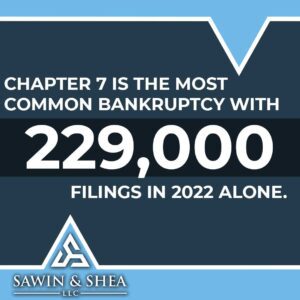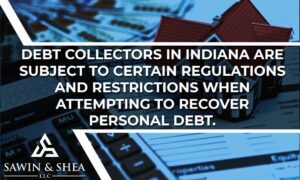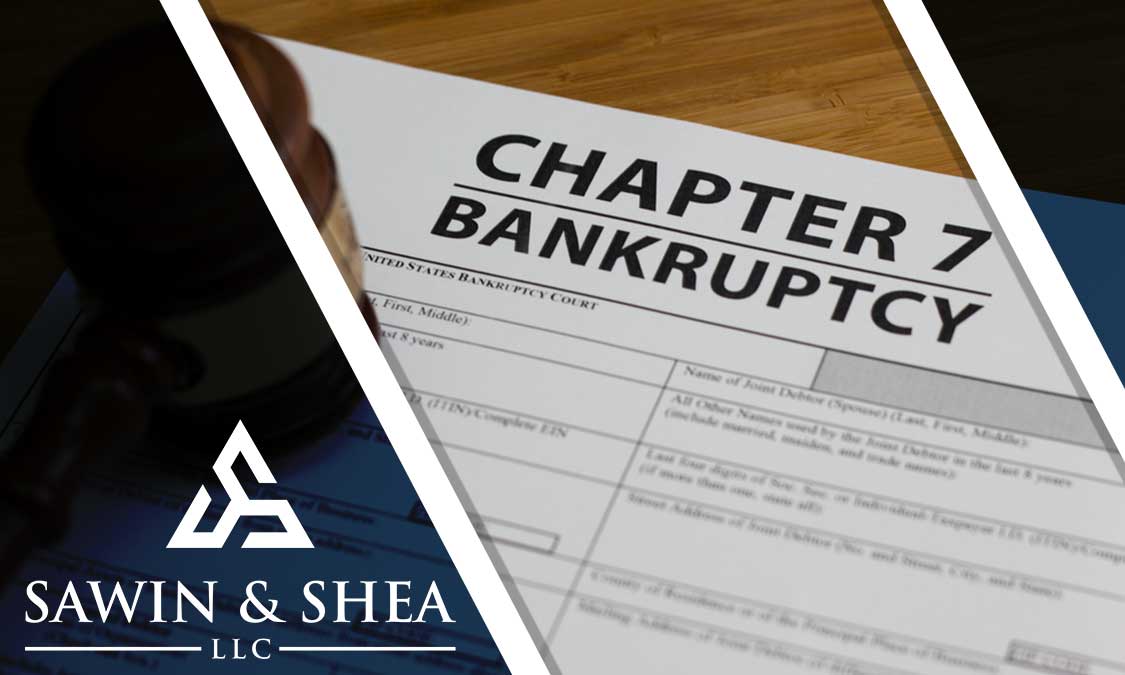Filing for bankruptcy can provide you with a much-needed second chance when it comes to your finances. If you are a victim of debt collector harassment, it’s important to know the debt collection laws, and consider your options for debt relief.
However, the process of going through Chapter 7 can be complicated and stressful to ensure you can keep what you need to continue living your life even after bankruptcy. In this article, we will walk you through Indiana debt collection laws and some of the many exemptions that help you keep your personal, real, or intangible assets when you file for a Chapter 7 in the State of Indiana.
What is Chapter 7 Bankruptcy?

Chapter 7 is the quickest and easiest way to discharge the majority of your debts through bankruptcy. It’s also the most common with over 229,000 filings in 2022 alone.
Chapter 7 is also known as liquidation bankruptcy because in exchange for receiving a discharge of most kinds of debts, the debtor has to give up non-exempt assets. The Court can sell all nonexempt possessions and assets. The money earned from these sales then goes to the creditors and any remaining balances on the debts are discharged.
Debt that qualifies for discharge under Chapter 7 includes:
- Credit card debt
- Medical bills
- Personal loans
- Mortgages
- Car loans
- Utility bills
- Payday loans
- Evictions
Debt that usually does not qualify for discharge under Chapter 7 includes:
- Child support
- Alimony
- Most student loans
- Some taxes
If the filer qualifies for Chapter 7, not all assets need to be sold, however. Known as exempt assets, these are the things you may keep when you file for Chapter 7 bankruptcy.
Debt Collection Laws: What Can Debt Collectors Do?



Debt collectors have a legal right to pursue the collection of personal debt within the bounds of the law. They can typically contact you through various means, including phone calls, letters, and emails, to request payment or negotiate repayment terms. Debt collectors may also report delinquent accounts to credit bureaus, which can negatively impact your credit score. In some cases, debt collectors may take legal action by filing a lawsuit against you to obtain a court judgment. If the court grants a judgment in favor of the creditor, they have additional collection options, such as wage garnishment, bank account levies, or placing liens on the debtor’s property. Debt collectors must adhere to the Fair Debt Collection Practices Act (FDCPA) and other relevant state and federal debt collection laws to ensure they act within the bounds of legality and fairness. Debtors have rights and protections under these laws to prevent harassment, false representations, or unfair practices by debt collectors.
Debt collectors in Indiana are subject to certain regulations and restrictions when attempting to recover personal debt. Indiana laws also provide individuals with exemptions to protect specific assets during bankruptcy proceedings. These exemptions allow debtors to retain essential items and debt collectors or bankruptcy trustees cannot seize or force the sale of these exempt assets to satisfy outstanding debts. However, it’s crucial to consult with a bankruptcy attorney to ensure that your assets are appropriately protected within the legal framework. Indiana’s bankruptcy laws aim to strike a balance between helping individuals overcome financial difficulties while ensuring that creditors have a fair chance to recover some of what they are owed.
What Are My Exempt Assets?
The United States Bankruptcy Code allows filers to keep certain assets, but depending on your state, that list may include other assets. Most states have codified what bankruptcy exemptions debtors filing in that state can use. If you have moved from a different state in the two years prior to filing the exemptions you may take become a bit more complicated. It is best to consult a bankruptcy attorney to ensure that you get the most benefit from your exemptions.
One of the most common exemptions in Indiana is the Homestead Exemption which allows an individual to protect up to $22,750 of equity in their real estate holdings or mobile home. If a spouse co-owns that property, the exemption amount can be doubled. This exemption applies to a property that is your personal or family residence.
Another standard exemption is known as the tangible personal property exemption. With this exemption, you can protect up to $12,100 of nonresidential real estate or tangible personal property of your choosing. Under another exemption, you can also protect up to $450 of intangible property, which include cash or cash equivalents. While Indiana does not have a specific exemption for motor vehicles, the tangible property exemption is often used to protect any equity a filer has in a car, truck, or other vehicle.
Filers in Indiana can also protect wages with the wages exemption. This would include the lesser of 75% of unpaid wages that were earned by the filer or 30 times the Federal minimum wage.
Another common exemption allows you to protect retirement benefits you have invested in. This may include:
- Pension, retirement, or IRA accounts
- Police and firefighter pension fund
- Public employee retirement
- Indiana State Teachers’ Retirement fund benefits
These are just a few of the exemptions that Indiana state bankruptcy laws allow you to protect if you are filing for Chapter 7 bankruptcy and facing asset liquidation. The goal is to not leave you completely destitute after filing for bankruptcy. These exemptions help ensure you have someplace to live, transportation to get to and from work, and other essentials.
What Are My Next Steps?
If you’re considering Chapter 7 bankruptcy, it’s vital to know the debt collection laws, and what exemptions apply to your situation and which are not to determine the best course of action. If exceptions are used incorrectly, you could potentially lose the property altogether.
Because the bankruptcy process can be complicated and stressful, the first step to take if you’re considering Chapter 7 bankruptcy is to contact a trusted bankruptcy attorney like the attorneys at Sawin & Shea, LLC. Our collective decades of experience mean we know the laws surrounding bankruptcy inside and out, and we will ensure any debtors are practicing fair debt collection practices and following the law. We will be able to guide you through the entire process with confidence that you’ll get to keep everything you need while experiencing a quick and simple Chapter 7 bankruptcy.
Contact our office today or call us at 317-759-1483 to discuss all your bankruptcy options and have the peace of mind you deserve during the entire process.



